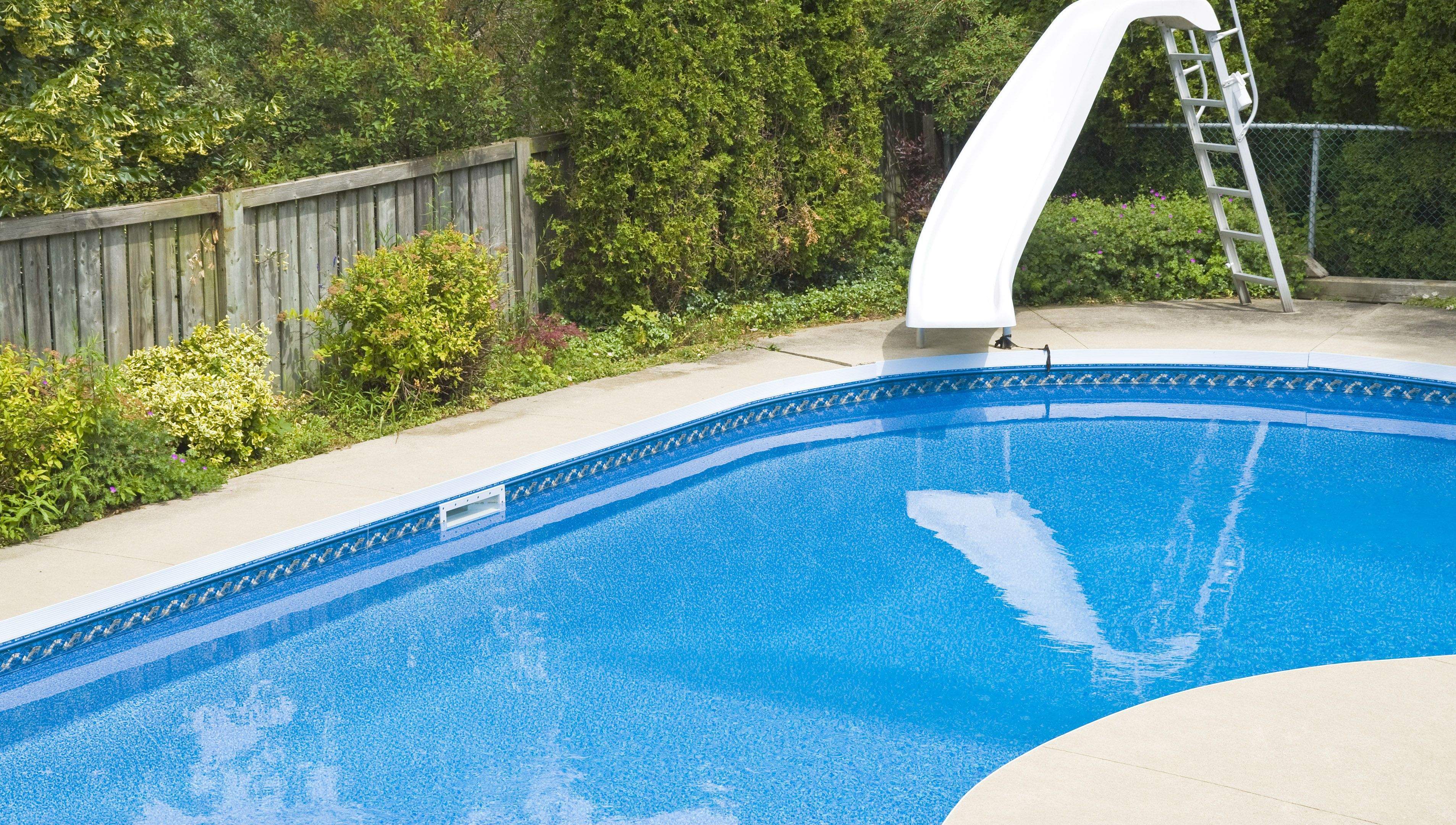
10 Things You Need to Know Before You Install a Vinyl Pool
Installation & Construction | Vinyl Liner Pool Information
Are you hoping to install a vinyl pool in your backyard this year?
As fiberglass pool manufacturers, we understand the joy that getting a pool can bring to the whole family, and we are excited that you are taking your next steps in your inground pool journey.
But what are some of the vinyl pool problems that you need to consider before you buy your swimming pool? What do vinyl pool owners wish they were aware of ahead of time?
In this article, we'll review ten things that people wish they knew before they bought a vinyl pool to help you decide if it's the right choice for your family.
Let's dive in.
Vinyl liner pools can take 4 to 8 weeks to build
That's not long compared to concrete swimming pools, which typically take at least 3 to 6 months to construct, but it's still a fair amount of time to have builders working in your yard with loud, heavy machinery. You can learn about the vinyl pool construction process here.
It probably won't be pet friendly
We all know that dogs have claws, and like other sharp objects, claws do not mix well with vinyl liner pools. The pool liner can easily tear from things like pet claws, in-pool furniture, and even human toenails (seriously). If you have a pet that might want to get in the pool with you, or if you want some in-pool furniture, we recommend exploring your concrete and fiberglass pool options as well.
A salt system might not be an option
A salt system can only be truly compatible with a vinyl pool if the pool has polymer wall panels. Metal pool wall panels can easily corrode and rust if you use a salt-chlorine generator to sanitize your vinyl liner swimming pool, and it's best to steer clear of any metal if you know you want a saltwater pool.
Note: Polymer wall panels are typically slightly more expensive, so keep that in mind when calculating your pool budget.
It's not as easy to DIY as you think
Sure, vinyl pools are the most DIY friendly inground pools compared to fiberglass and concrete swimming pools, but they're not as simple to build as you might think. Your pool installation will require tons of expensive equipment, and it's recommended that you only do a DIY pool project if you have some construction experience, particularly pool construction.
For example, you're going to need to figure out what to do with all the dirt that comes out of the excavation and trust us when we say it's a lot of dirt. A seasoned pool builder will know exactly what to do in each building phase and how to handle any problems should they arise during the pool's construction. If you decide to take on a DIY vinyl pool, be sure to do plenty of research beforehand and consider reaching out to a local pool builder for help.
You'll need to change the pool liner often
Vinyl pools require fresh liners about every 5 to 9 years or sooner if it has extensive damage. Pool liner replacements can cost around $4,500 each time on average, which can quickly add up to over $20,000 throughout the pool's lifetime.
Note: Vinyl pools are still cheaper to maintain than concrete pools, but they aren't as cheap to maintain as fiberglass pools.
Read more: Vinyl Pool Liner Replacement: Cost, Steps, Tips
The pool liner can float and wrinkle
Wrinkles in a vinyl pool liner are pretty common, but they're not always easy to get out. Not only are pool liner wrinkles unsightly, but they can also catch algae and make it harder to maintain your pool. A floating liner and bad pool chemistry are the usual culprits behind liner wrinkles.
When the groundwater level around the pool gets too high, it can push the liner up and cause it to "float." When the liner goes back down, it can be out of place, stretched, and full of wrinkles. Poor pool chemistry can also make your liner absorb water, which causes it to distort its shape and develop wrinkles. However, it's also normal for wrinkles to develop over time, no matter how careful you are.
Read more: How to Remove Wrinkles from Your Inground Vinyl Liner Pool
The pool walls can collapse
On rare occasions, the walls of a vinyl liner pool can collapse. This is typically caused by draining the pool or letting the water level get too low, which we do not recommend for any pool type unless you have help from an experienced pool service provider. Needless to say, a collapsed pool is a big problem that you want to avoid at all costs.
It may not increase the value of your home
Vinyl pools are the least durable of all the inground pool types, and it's unlikely that it will increase the value of your home. If you're looking to invest in your property with an inground pool, you might want to consider concrete or fiberglass instead.
Read more: Will a Fiberglass Pool Increase the Value of My Home?
Pool liner warranties can be unreliable
You are probably well aware that your pool liner might get damaged, but did you know that your liner warranty might not cover the cost to repair or replace it? The problem is that vinyl liner warranties are often extremely limited and may not cover the majority of the costs to maintain the liner. That means you should expect to pay for most pool liner repairs out of pocket.
It might not look as nice as you hoped
Another common issue is that vinyl liner pools don't usually look as nice as concrete and fiberglass pools. Several vinyl liner pool owners have told us that the plastic steps, coping, and pool liner give the pool a "cheap" look. The fact is that all of these parts are disposable and must be replaced regularly, which can impact the overall aesthetics of your swimming pool. Fading liners due to pool chemicals or sunlight are also a problem and can make your pool look older.
In many cases, you might be able to upgrade to a concrete or fiberglass inground pool for $5,000 or $10,000 more, depending on your project.
If you'd like to compare the three main inground pool types in depth, including cost, designs, and maintenance, you can download our free ebook below, visit our video library, or check out our pricing guide for more information.
At River Pools, we manufacture world-class fiberglass pools for homeowners across North America. If you are considering getting a fiberglass pool for your home, you can browse our pool models, try out our pool pricing calculator for a rough estimate, or request custom pricing from us today using the button below. Happy swimming!
Up Next:
Vinyl Liner Pool Basics: Pros, Cons, and How They’re Made
Inground Pool Comparison: Vinyl Liner vs. Concrete vs. Fiberglass Pools (Infographic)






